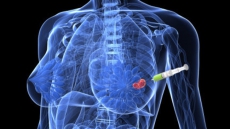Following a healthy lifestyle may lower childhood cancer survivors' risk of developing the metabolic syndrome, says a study.
Adults who had cancer as children are known to be at increased risk for the metabolic syndrome, a group of risk factors that increases the likelihood of developing heart disease and other health problems such as diabetes and stroke.
People with the metabolic syndrome have some combination of factors including high blood pressure, abnormal cholesterol and glucose levels, and increased body fat.
Kirsten Ness from St. Jude Children's Research Hospital in Memphis and her colleagues looked to see if lifestyle habits might affect cancer survivors' risk of developing the metabolic syndrome.
The team studied 1,598 childhood cancer survivors who were cancer-free for at least 10 years.
The findings indicate that children with cancer and adults who had cancer when they were children should receive information about how their lifestyle may influence their long-term health.
The metabolic syndrome was present in 31.8 percent of the participants.
Females who did not follow the guidelines were 2.4 and males were 2.2 times more likely to have the metabolic syndrome than those who followed the guidelines.
Cancer survivors should not smoke.
"In addition, adopting a lifestyle that includes maintaining a healthy body weight, regular physical activity, and a diet that includes fruits and vegetables and that limits refined sugars, excessive alcohol, red meat, and salt has potential to prevent development of the metabolic syndrome," said Ness.
The study appeared online in the journal CANCER.





